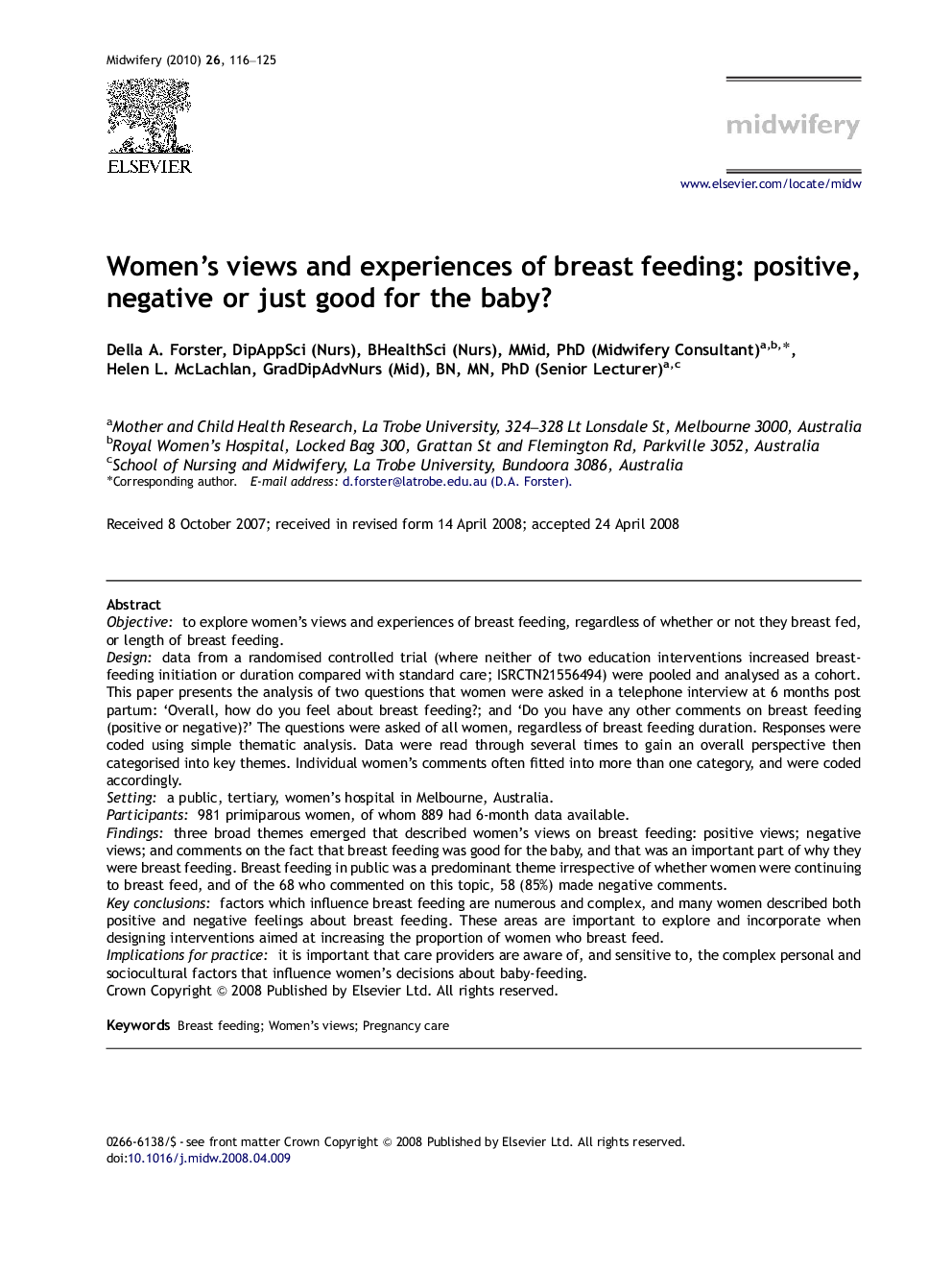| Article ID | Journal | Published Year | Pages | File Type |
|---|---|---|---|---|
| 1085446 | Midwifery | 2010 | 10 Pages |
Objectiveto explore women's views and experiences of breast feeding, regardless of whether or not they breast fed, or length of breast feeding.Designdata from a randomised controlled trial (where neither of two education interventions increased breast-feeding initiation or duration compared with standard care; ISRCTN21556494) were pooled and analysed as a cohort. This paper presents the analysis of two questions that women were asked in a telephone interview at 6 months post partum: ‘Overall, how do you feel about breast feeding?; and ‘Do you have any other comments on breast feeding (positive or negative)?’ The questions were asked of all women, regardless of breast feeding duration. Responses were coded using simple thematic analysis. Data were read through several times to gain an overall perspective then categorised into key themes. Individual women's comments often fitted into more than one category, and were coded accordingly.Settinga public, tertiary, women's hospital in Melbourne, Australia.Participants981 primiparous women, of whom 889 had 6-month data available.Findingsthree broad themes emerged that described women's views on breast feeding: positive views; negative views; and comments on the fact that breast feeding was good for the baby, and that was an important part of why they were breast feeding. Breast feeding in public was a predominant theme irrespective of whether women were continuing to breast feed, and of the 68 who commented on this topic, 58 (85%) made negative comments.Key conclusionsfactors which influence breast feeding are numerous and complex, and many women described both positive and negative feelings about breast feeding. These areas are important to explore and incorporate when designing interventions aimed at increasing the proportion of women who breast feed.Implications for practiceit is important that care providers are aware of, and sensitive to, the complex personal and sociocultural factors that influence women's decisions about baby-feeding.
